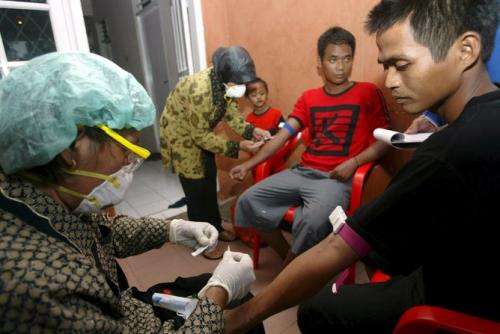Bird flu researchers return to the lab after year-long debate

Controversial research into the H5N1 virus, more commonly known as bird flu, is set to recommence, after it was delayed in 2011 following a request from the US government.
The research had raised biosecurity concerns that it could be used in the wrong hands to develop a biological weapon.
In a letter published in journals Nature and Science today, 40 researchers from around the world argue that measures to mitigate the possible risks of the work have been detailed, and other aims of the voluntary moratorium on the research have mostly been met.
The research involved lab-created versions of the H5N1 flu virus that spread more easily between mammals.
"The laboratories have expanded on their containment and security system used in the experiments," said Dr John McCauley, director of the WHO Collaborating Centre for Reference and Research on Influenza.
"Therefore, the WHO group's recommendations were satisfied."
The original moratorium on the research was expected to last 60 days, but in the end held for a year.
"There is probably not a scientific issue in recent times that has not been so widely thrown out for public consultation as this one," said Professor Wendy Barclay, Chair in Influenza Virology at London's Imperial College, and a signatory to the letter published today.
"The lifting of the moratorium will undoubtedly lead to more scientific revelations that will have direct consequence for human and animal health," Professor Barclay said.
It's important that the research continue, with the appropriate regulatory and ethical approval and oversight, said Dominic Dwyer, director of the Centre for Infectious Diseases at Westmead Hospital.
"H5N1 influenza is still causing significant disease in poultry and still occasionally causing fatal disease in humans.
"We've been lucky it hasn't spread from person to person," Dr Dwyer said.
"If we understand why the spread form person to person hasn't happened or could happen, then that research is really valuable."
Professor Barclay said several other labs had been working in the area for some years, publishing and presenting their work openly, but only when efforts yielded up a positive result did anyone really notice.
"Then there was a knee jerk response from certain quarters previously naive of this approach, expressing horror that scientists were brewing up deadly diseases. It became clear that the public needed reassurance and justification about these experiments."
Dr Dwyer said people had a reasonable right to be concerned and advised about how science is done, with ethics committees playing a critical role.
"You want an ethics committee alert enough to consider the implications of this type of work."
This story is published courtesy of the The Conversation (under Creative Commons-Attribution/No derivatives).
















